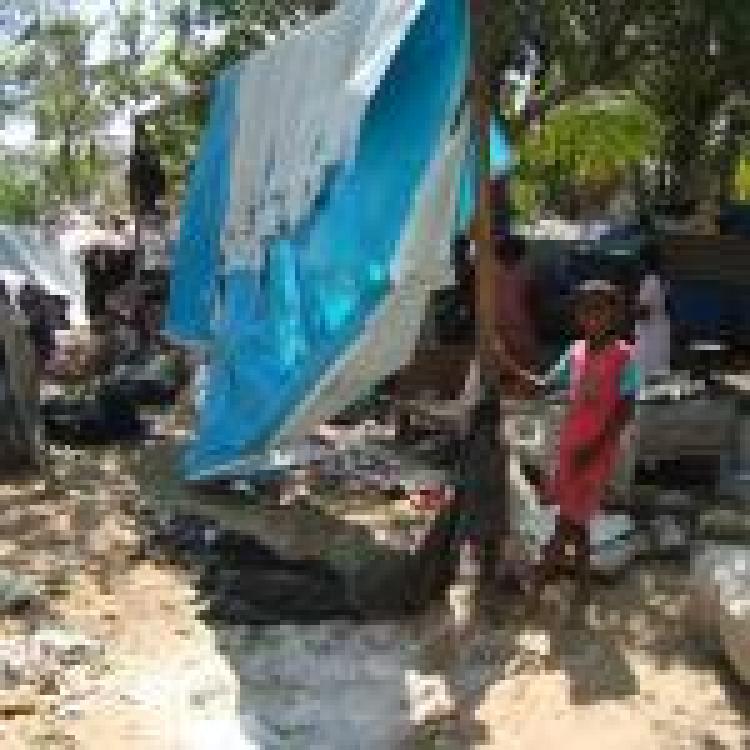.jpg)
Photograph: Toronto, May 10th 2009. (Sam Javanrouh - Flickr)
On this day 11 years ago, thousands of Tamil protestors took to the streets of Toronto, demanding international action as the Sri Lankan military massacred tens of thousands of Tamils.
As we mark the anniversary of the protest on the Gardiner Expressway, we share reflections from activists who were part of the demonstrations in Canada.
The Gardiner protest was pivotal in shaping the political identity of many young Tamils. It inspired a new generation of activists and my own in continuing to demand justice for Tamils on the island while also carrying on the fight for liberation.
The protest, which occurred on Mothers day, had predominately negative public perception and media coverage, evidenced through their use of language - which often carried racial undertones - and played a role in delegitimizing the protest itself. Rather than centring the story around the genocide and international intervention – the purpose behind the protests, the coverage focused on dominant narratives surrounding the Tamil community as being ‘disruptive’, an ‘inconvenience’ and ‘ungrateful’ and labelling us as ‘others’ and ‘terrorists’ while also removing women from their political agency.
It is important to note that the blockade was spontaneous and came after months and months of peaceful protests met with inaction by the Canadian government. After hearing news of hundreds of Tamil civilians killed in what was declared a “No Fire Zone” the night before, the community took to the Gardiner to protest out of desperation in an immense display of strength, solidarity, and action.
While a genocide was occurring, while thousands were being slaughtered, while schools, hospitals and places of worship were being destroyed, while “No Fire Zones” were met with bombs, Canadians were late for Mother’s Day dinner.
11 years on, the community is reclaiming the narrative ensuring that Tamil experiences, stories and lives are at the centre in remembering 2009.
%201.jpg)
Photograph: Toronto, May 10th 2009 (Roberto Baca - Flickr)

